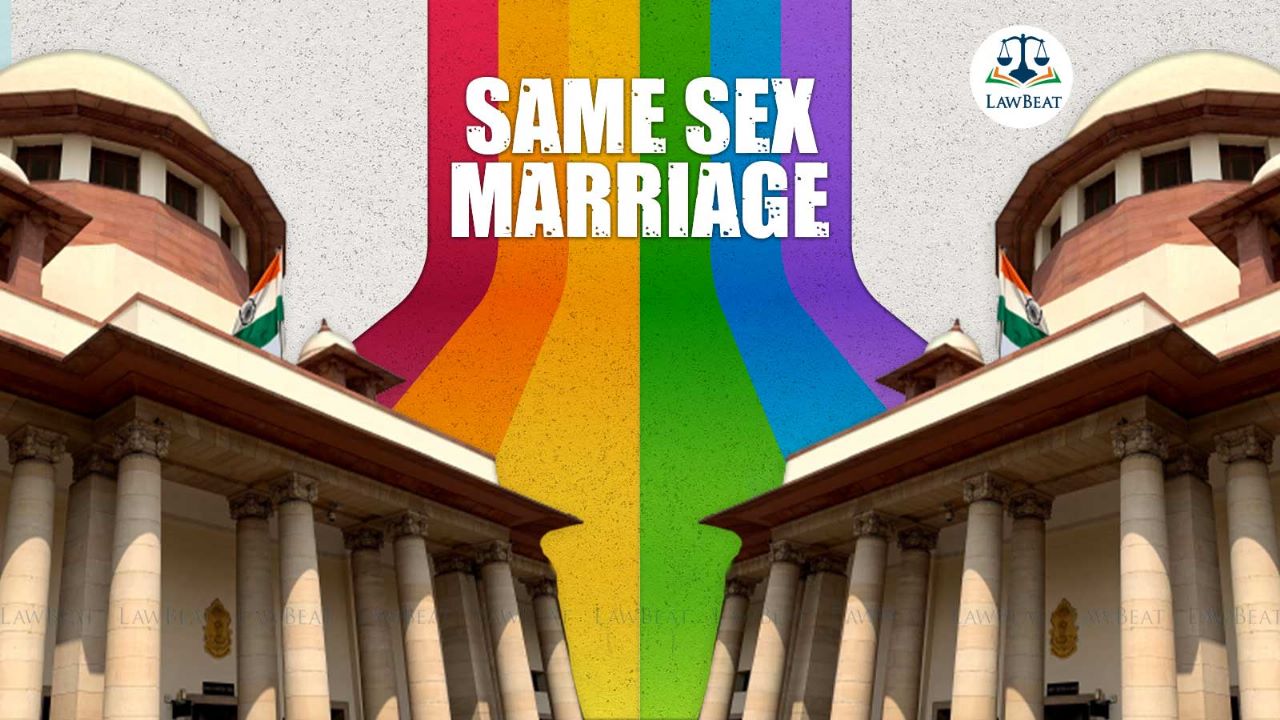BREAKING| "No Fundamental Right to Marry within our Constitution": Supreme Court refuses to legally recognize Same Sex Marriage

The petitioners had argued before Court that lack of recognition of same-sex marriage amounted to denial of equal protection of laws
In a landmark verdict delivered today, the Supreme Court of India has refused to provide legal recognition to same sex marriages. Court has further held that no fundamental right to marry can be found under the Indian Constitution.
A five judge Constitution bench led by Chief Justice of India has left it on the Union to constitute an High Powered Committee headed by the Cabinet Secretary for this purpose to look into the aspects of queer relationships.
The Constitution bench comprising Chief Justice of India DY Chandrachud, Justices Sanjay Kishan Kaul, S Ravindra Bhat, PS Narasimha and Hima Kohli has been seized with the same-sex marriage petitions since the hearing began on April 18.
Four out of the five judges in the bench have penned separate judgments, with Justice Kohli agreeing with the view penned by Justice Bhat.
Notably, the bench has recognized transgender marriages to be recognized under the laws prevailing in the country. On the aspect of Special Marriage Act and the challenge to its provisions, it has been held that they cannot be held to be unconstitutional and the court cannot read words into its provisions as well.
A Constitution bench of Supreme Court on May 11, 2023 had reserved its verdict in the plea’s seeking legal recognition of same sex marriage, after having heard the parties over ten days.
Solicitor General Tushar Mehta had placed before Supreme Court, the response received from seven states on the issue. The Constitution Bench was informed that while Manipur, Uttar Pradesh, Maharashtra and Sikkim has sought some time to respond, the states of Rajasthan, Assam and Andhra Pradesh has expressed their opposition to the said petition.
In November last year, the Supreme Court had issued a notice in the plea moved by a gay couple seeking legal recognition of same-sex marriage under the Special Marriage Act, of 1954.
The Central Government had filed an affidavit before the Supreme Court opposing the demand for legal recognition of same-sex marriages in India.
Citing the ‘nature of the concept of marriage’, the affidavit stated that the notion of marriage itself necessarily and inevitably presupposes a union between two persons of the “opposite sex”.
Case Title: Supriyo@ Supriya Chakraborthy vs. Union of India & Anr. (a batch of petitions)
